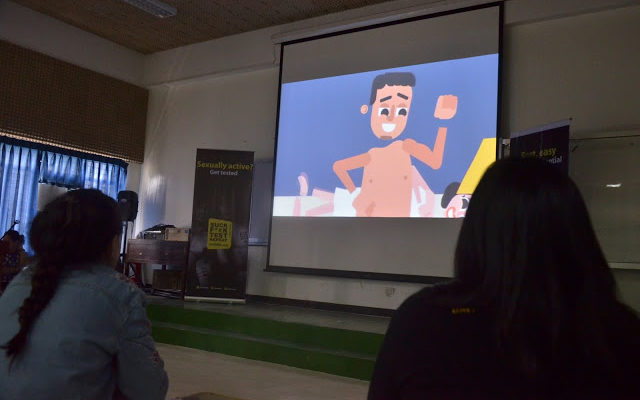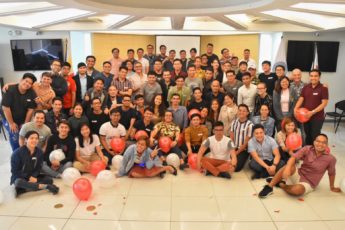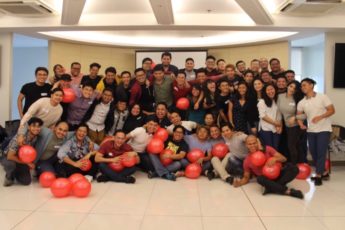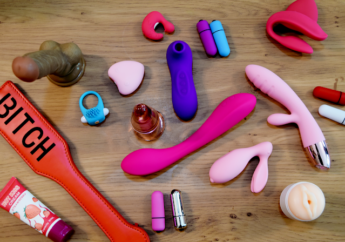The HIV crisis has gone on for four decades, and for four decades the world has struggled against it. Doctors, scientists, educators, policy makers, writers, artists – people of all walks and all colors have, in their own ways, sought to make sense of this crisis and its relationship with society. From citizens to states, from medicine to prayer, from cures to cries for reform, people’s visions of how to respond to the crisis are as diverse as the people who bear its scars. The goal of this series is to give you a glimpse of these visions: the roles people of different passions and disciplines have played in this crisis that, as of February 2017 as recorded by the Department of Health’s Epidemiology Bureau, is infecting 28 Filipinos daily.
Along with rising rates of HIV infection is the rising numbers of young Filipinos who are living with the virus – the latest HARP data shows that 28% of HIV cases were detected in people aged 15-24 years old. From 2006-2010, this particular age group contributed 25% of cases. Generally speaking, the age group contributing to the greatest number of cases is getting younger, and with the pace it is going, it is only a matter of time before the youth will be the greatest contributor to the number of HIV cases.
Human Rights Watch said in a December 2016 report that the number of HIV cases among men who have sex with men (MSMs) has increased tenfold in the last five years. MSMs now account for 82% of recorded HIV cases in the country since January 2012, while before that, the predominant transmission was from male-female sex. Data showing HIV prevalence among the Filipino transgender community is much more difficult to come by, since transgender women, for instance, are also included in the MSM demographic.
The international watchdog also points out the ineptitude of government policies to “target prevention measures” on MSMs and transgender people, pointing out the inadequacy of HIV prevention education in Filipino schools, almost nonexistent commercial marketing and campaigns promoting condom use, and barriers to condom access and HIV testing as factors contributing to the state of the epidemic in the country. Furthermore, parental consent is required from clients who are under 18 years of age who want to get themselves tested.
Healthcare Issues Faced by the Filipino LGBT Community
In the UNDP-USAID LGBT Philippines Country Report, several factors were cited that contributed to why Filipino LGBTs are disadvantaged in accessing healthcare. Social and legal issues, “human rights issues,” make them more vulnerable to infection due to repressive legal environments and a lack of laws and policies. Stigma and discrimination are encountered in various facets of society. Filipino MSMs miss out on opportunities “on the basis of being gay” – and this extends from the work environment to access to healthcare that will enable them to manage their sexual health. As of March 14, 2017, the proposed House Bill (HB) No. 4982 or the “Sexual Orientation or Gender Identity or Expression (SOGIE) Equality Act” that criminalizes discrimination and ensures equal opportunities for the LGBT community is still being debated in Congress and remains to be enacted into a law.
The UNDP-USAID investigative report highlighted the importance of LGBT organizations that offer HIV-related services. However, the report pointed out the failure of government health institutions in delivering HIV prevention services which had to be augmented by the advocacies of NGOs who provide free counseling and testing. The extent of services to PLHIVs is also limited. There are no provisions for deaf LGBT people as there are no Filipino language interpreters who can offer counseling services at HIV testing centers. As counselors in health institutions are only trained to provide support related to pre-test and post-test counseling, psychosocial support also remains limited with only a few equipped with the skills to respond to the emotional needs of LGBT Filipinos.
The Gender Center at UPLB
The Gender Center at the University of the Philippines Los Baños (UPLB) focuses on gender studies research and provides counseling services on gender-related issues, including personal problems faced by LGBTs and cases of sexual harassment and seminars and workshops on SOGIE and reproductive health.
In 2013, Sai Saipudin, a research assistant at the UPLB Gender Center, together with her colleagues, chanced upon LoveYourself while searching in the internet for HIV awareness programs. The Gender Center at that time wanted to extend its capabilities to cover HIV counseling, a topic that, though distinct in itself, is wholly under the realm of reproductive health. The center did not have any module to deal with HIV cases. This concern is also a foresight upon seeing the growing number of cases in Region IV-A, where the environs of Los Baños is part of.
In that year, LoveYourself volunteers gave a talk about HIV/AIDS in UPLB. The presentation covered HIV101 fundamentals, debunking HIV myths, SOGIE concepts, the current situation of the HIV epidemic, and existing laws and legislation. Sai recalls the event to be a success as she was impressed with the turnout of attendees —close to a hundred people came. “People were largely interested to know about HIV/AIDS and other sexually transmitted infections (STIs). They wanted to learn about their reproductive health,” says Sai. In 2014, LoveYourself held its first on-site testing in the campus.
Being a non-secular institution, the Gender Center did not face religious or cultural opposition in organizing the talk and the on-site testing. “One girl though didn’t seem to be quite comfortable with what she was hearing and walked-out during the presentation,” recounts Sai.
Inclusiveness or Selective Marketing
The Gender Center organized its events with LoveYourself with no specific population targeted in mind. “Despite what HARP data tells us, we didn’t want our events to focus on MSMs or LGBTs. I think targeting them for our campus testing events will just reinforce the stigma that HIV/AIDS is a gay disease,” explains Sai. LoveYourself, on the other hand, has largely used sex-positive approaches in its past mass testing campaigns, and with the latest figures, it is shifting its strategy and the tune of its campaigns to bring more young MSMs to have themselves tested and find out their status.
TestMNL, an initiative of APCOM and LoveYourself, was first brought to UPLB for its March 2017 event. TestMNL is a campaign targeting MSMs to get tested for HIV. Its outright slogan, “Suck, F*#k, Test, Repeat” is an affirmation of the gay lifestyle while reinforcing the importance of safe sex and regular testing. Its original inspiration, TestBKK, was started as a response to the high rates of incidence among young MSMs in Bangkok. The campaign has had an overwhelming success in Thailand. The response in the more conservative Philippines however has been largely mixed, with some having reservations about the perceived “bluntness” of the campaign.
“A professor actually told us that this campaign is more suited to bathhouses and gay cruising areas and not in campuses.” However, Sai thinks that the campus is just equally an appropriate place for a campaign like TestMNL. “Everyone has sex. What TestMNL imparts is for HIV testing to be incorporated into the management of people’s sexual health.” The TestMNL booth did not specifically attract MSMs or LGBTs alone – heterosexual people also visited the booth to ask questions and get free condoms and lubes.
Earl Patrick Penabella, an officer of LoveYourself Caravan, suggests that some cultural sensibilities have to be shaken to break the stigma. “You can’t really please everyone. If you want to break the stigma, you have to do more than just try to take everyone into consideration.” Earl makes this statement in reference to the MSM-targeted campaigns of LoveYourself for its various mass testing events, an approach that goes against Sai’s perspective on inclusiveness. The organization’s campaigns are a response to the reality that MSMs comprise the segment of the population most vulnerable to acquiring HIV infection. This fact requires careful and critical consideration – a psychosocial state of affairs intricately linked with stigma and discrimination. With this mind, Earl warns against hasty generalizations: “Just because you’re targeting MSMs in your campaigns, doesn’t mean that you are saying that HIV/AIDS is a gay disease.”
Solving Challenges From Inside the Campus
Breaking stigma starts from the basics, and this is what the Gender Center tirelessly conducts through its SOGIE lectures and through its collaborative events with LoveYourself. “I remember a particular case from a transman who was about to enter the same toilet as his professor,” recalls Sai. “His professor made a joke about him going into the wrong toilet.” The student was offended with the professor’s insensitivity, and the latter’s lack of understanding about the implications of his joke was also quite apparent. “There’s no one to blame really, but educating them about SOGIE would mean a world of difference.”
And teaching everyone – staff or student – about SOGIE is indeed a challenge. “They were very confused. For them, if you’re gay, you’re just effeminate – the kind you see in parlors.” But learning about the multiplicity of combinations of SOGIE always proves to be an eye-opener. “SOGIE is all encompassing – from heterosexuals to transgenders, and this makes them understand more about each other. They realize that it’s possible for a straight-acting man to prefer men, and that person is likewise gay, and transwomen are women because they identify themselves to be so, they’re not gay.”
Sai also hopes to respond to the growing crisis in the Southern Tagalog Region. Region IV-A comes next to the Metropolitan Manila region in terms of the number of HIV cases. Apart from the Gender Center, most HIV testing, counseling, and treatment takes place in government hospitals and rural health units whose resources may not be enough to deal specifically with LGBT needs.
“In fact a considerable portion of those who go to our testing events in UPLB aren’t students or staff of the university – they come from Los Baños,” suggesting that there might be a need to reach out to the greater population residing beyond the campus. The Gender Center is considering plans to get volunteers from the UPLB student body and staff to get trained to become peer counselors to address the growing numbers of those requiring HIV counseling. Also, it is hoping that more collaboration with local government institutions will take place so that more people in the region may get tested and find out their status.
Accessing the entire population to realize the extent of the HIV epidemic is a daunting task. in a society where stigma against LGBTs and HIV/AIDS is entrenched, educating the general public about SOGIE is also a challenge not to be taken lightly. With the persistence of efforts of organizations such as UPLB’s Gender Center, we can only hope that their mission can inspire others to start reaching out to their communities, and educate the public towards greater acceptance and understanding.
Text by Kris Tangco
Photos by Joma Ragragio




